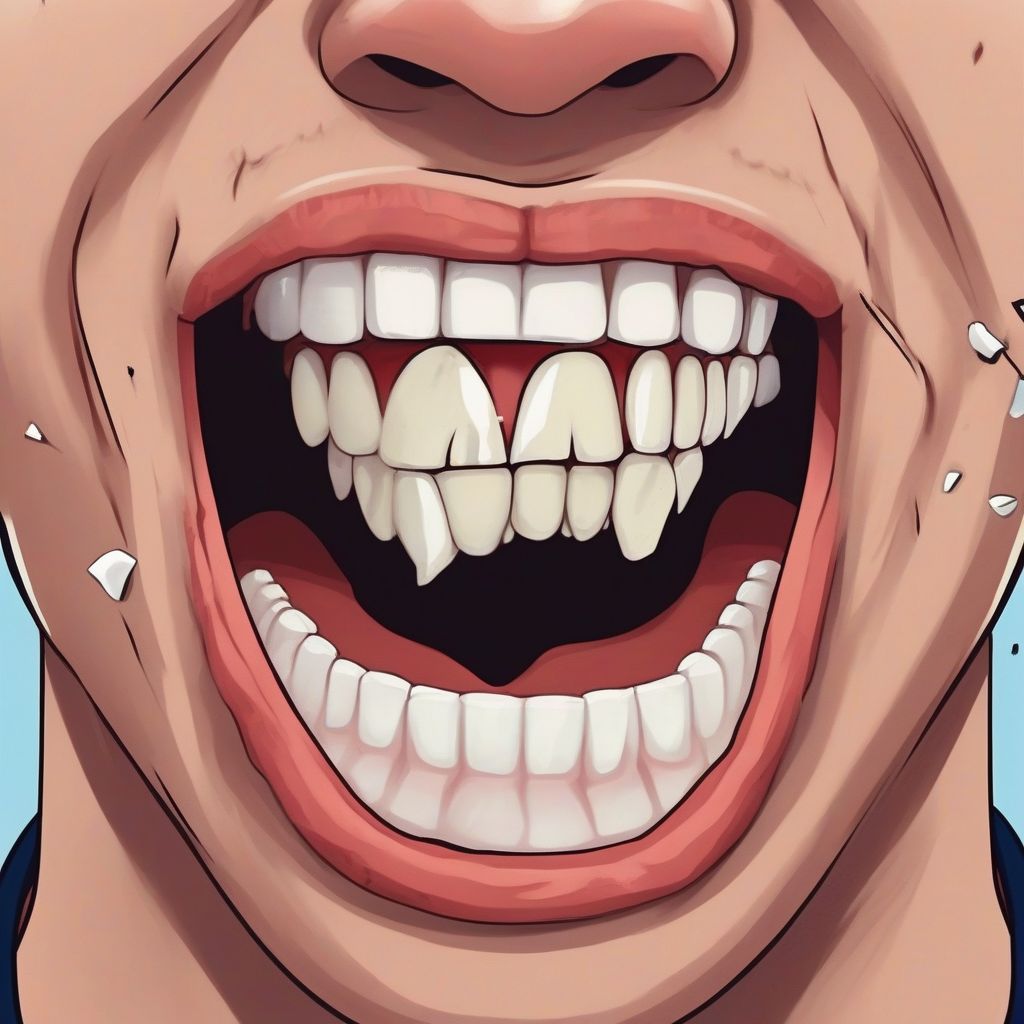Imagine this: you’re finally meeting a potential investor after months of planning and securing inventory for your warehouse. You’re ready to seal the deal with a confident handshake, but your smile is suddenly marred by a sharp, agonizing pain. You’ve just broken a tooth, and worse, it’s showing signs of decay. This scenario, unfortunately, is more common than you might think. Broken Tooth Decay can happen to anyone, and it can significantly impact both your personal and professional life, especially if you’re in a business where appearances are paramount.
What is Broken Tooth Decay?
Broken tooth decay occurs when a tooth fractures, exposing the inner layers of dentin and pulp to bacteria. This exposure can lead to infection, pain, and ultimately, the need for extensive dental work. As a busy professional juggling suppliers, shipments, and inventory management, your oral health might be the last thing on your mind. However, understanding broken tooth decay, its causes, and preventative measures can save you from future discomfort and costly dental procedures.
Common Causes and Symptoms: What You Need to Know
Several factors can lead to broken tooth decay, many of which are preventable with proper oral hygiene and mindful habits. Let’s delve into some common culprits:
1. Untreated Cavities:
Cavities weaken the tooth structure, making it more susceptible to fractures. Regular dental checkups and proper brushing and flossing habits are crucial in preventing and treating cavities before they escalate.
2. Teeth Grinding:
Known as bruxism, teeth grinding exerts excessive pressure on your teeth, increasing the risk of cracks and fractures. If you suspect you grind your teeth, consult your dentist about wearing a nightguard.
3. Physical Trauma:
Accidents happen, and a blow to the face or biting down on something hard can easily chip or break a tooth. While not always avoidable, wearing a mouthguard during contact sports can provide an extra layer of protection.
 Chipped Tooth from Sports Injury
Chipped Tooth from Sports Injury
4. Poor Diet:
A diet high in sugary foods and drinks creates an acidic environment in your mouth that weakens enamel and promotes tooth decay. Opting for nutritious snacks and limiting sugary beverages can significantly benefit your oral health.
Recognizing the Signs: Don’t Ignore These Symptoms
Early detection is key to managing broken tooth decay effectively. Be on the lookout for these telltale signs:
- Persistent Toothache: Pain that intensifies when biting or chewing can indicate a cracked or fractured tooth.
- Sensitivity to Temperature: If hot or cold foods and beverages trigger sharp pain, it could be a sign of exposed dentin.
- Swelling or Tenderness: Swelling or tenderness around the affected tooth might indicate an infection requiring immediate dental attention.
Prevention is Key: Protecting Your Smile and Your Bottom Line
Just as you implement strategies to protect your business investments, taking proactive steps to maintain good oral hygiene is essential. Here’s how:
- Brush and Floss Regularly: Brushing twice a day and flossing daily removes plaque and food particles that contribute to decay.
- Schedule Regular Dental Checkups: Professional cleanings and examinations every six months can identify and address potential issues before they worsen.
- Wear a Mouthguard When Appropriate: Whether you’re playing sports or grinding your teeth at night, a mouthguard provides a protective barrier against dental injuries.
- Maintain a Balanced Diet: Limiting sugary snacks and drinks and opting for a balanced diet rich in fruits, vegetables, and calcium-rich foods strengthens teeth and minimizes the risk of decay.
Conclusion:
In the fast-paced world of business, your health is an invaluable asset. Don’t let broken tooth decay derail your success. By understanding the causes, recognizing the symptoms, and prioritizing preventative measures, you can maintain a healthy smile and focus on what matters most: growing your business. Remember, your oral health is an investment, not an expense. For further information on dental care and finding reputable providers in your area, consult your local dental association or trusted healthcare professionals.

